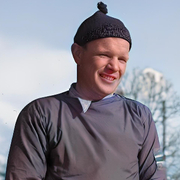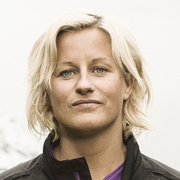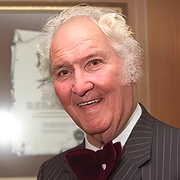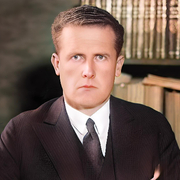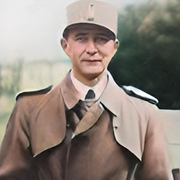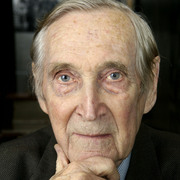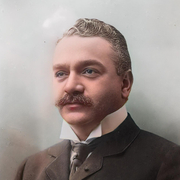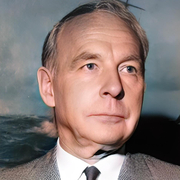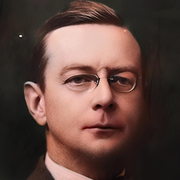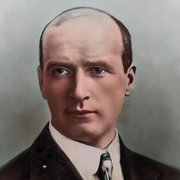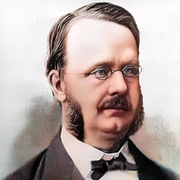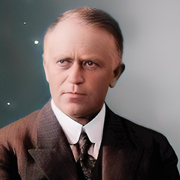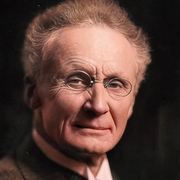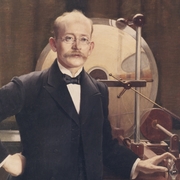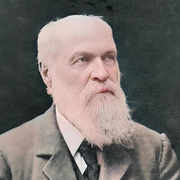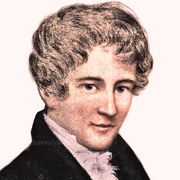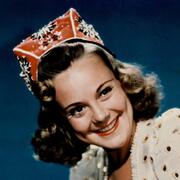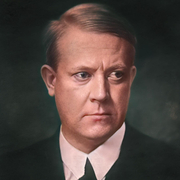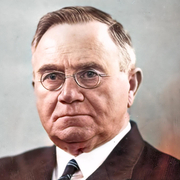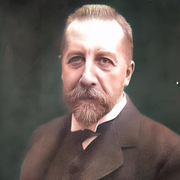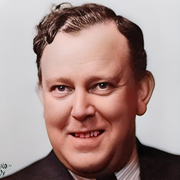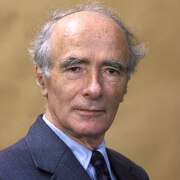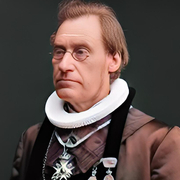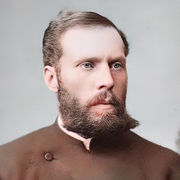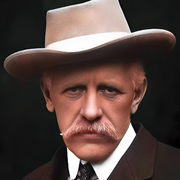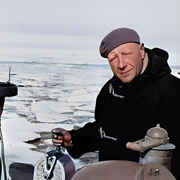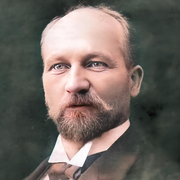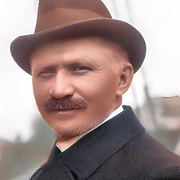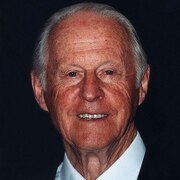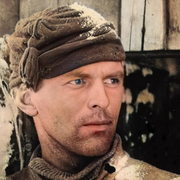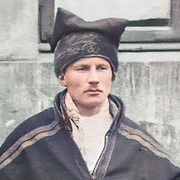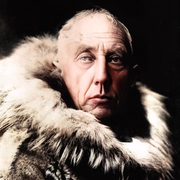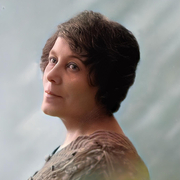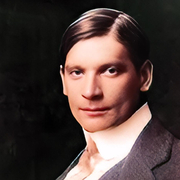 Edvard Storm
1749 - 1794
Poet, songwriter and educator
Edvard Storm
1749 - 1794
Poet, songwriter and educator
 Regine Normann
1867 - 1939
Novelist and story writer
Regine Normann
1867 - 1939
Novelist and story writer
 Amalie Skram
1846 - 1905
Novelist
Amalie Skram
1846 - 1905
Novelist
 Sverre Fehn
1924 - 2009
Modernist architect
Sverre Fehn
1924 - 2009
Modernist architect
 Thorvald Stoltenberg
1931 - 2018
Minister of Defence and Foreign Affairs
Thorvald Stoltenberg
1931 - 2018
Minister of Defence and Foreign Affairs
 Henrik Ibsen
1828 - 1906
Playwright and theatre director
Henrik Ibsen
1828 - 1906
Playwright and theatre director
 Oskar Braaten
1881 - 1939
Novelist and dramatist
Oskar Braaten
1881 - 1939
Novelist and dramatist
 Johan Bernhard Hjort
1895 - 1969
Supreme court lawyer
Johan Bernhard Hjort
1895 - 1969
Supreme court lawyer
 Martin Jensen Linge
1894 - 1941
commander of the Norwegian Independent Company 1
Martin Jensen Linge
1894 - 1941
commander of the Norwegian Independent Company 1
 Bernt Lie
1868 - 1916
Novelist
Bernt Lie
1868 - 1916
Novelist
 Nils Kaer
1870 - 1924
Playwright and critic
Nils Kaer
1870 - 1924
Playwright and critic
 Johan Nordahl Brun
1745 - 1816
Poet, dramatist, bishop of Bergen, politician
Johan Nordahl Brun
1745 - 1816
Poet, dramatist, bishop of Bergen, politician
 Sigurd Ibsen
1859 - 1930
Prime minister of Norway in Stockholm
Sigurd Ibsen
1859 - 1930
Prime minister of Norway in Stockholm
 Anne Karin Elstad
1938 - 2012
Author
Anne Karin Elstad
1938 - 2012
Author
 Sam Eyde
1866 - 1940
Founder of Norsk Hydro and Elkem
Sam Eyde
1866 - 1940
Founder of Norsk Hydro and Elkem
 Harriet Backer
1845 - 1932
Painter
Harriet Backer
1845 - 1932
Painter
 Kirsten Sand
1895 - 1996
Architect
Kirsten Sand
1895 - 1996
Architect
 Ragnhild Jolsen
1875 - 1908
Author
Ragnhild Jolsen
1875 - 1908
Author
 Mette Lange-Nielsen
1929 - 1981
Actress and costume designer
Mette Lange-Nielsen
1929 - 1981
Actress and costume designer
 Viggo Brun
1885 - 1978
Mathematics professor
Viggo Brun
1885 - 1978
Mathematics professor
 Christian Christie
1832 - 1906
Architect
Christian Christie
1832 - 1906
Architect
 Ragna Wettergreen
1864 - 1958
Actress
Ragna Wettergreen
1864 - 1958
Actress
 Camilla Collett
1813 - 1895
Writer and feminist
Camilla Collett
1813 - 1895
Writer and feminist
 Christian Krohg
1852 - 1925
Naturalist painter and illustrator
Christian Krohg
1852 - 1925
Naturalist painter and illustrator
 Johan Jorgen Holst
1937 - 1994
Minister of Defence and Foreign Affairs
Johan Jorgen Holst
1937 - 1994
Minister of Defence and Foreign Affairs
 Inger Hagerup
1905 - 1985
Poet, writer, playwright
Inger Hagerup
1905 - 1985
Poet, writer, playwright
 Brynjulf Bergslien
1830 - 1898
Sculptor
Brynjulf Bergslien
1830 - 1898
Sculptor
 Ole Paus
1947 - 2023
Singer-songwriter, poet, author
Ole Paus
1947 - 2023
Singer-songwriter, poet, author
 Maurits Hansen
1794 - 1842
Writer and teacher
Maurits Hansen
1794 - 1842
Writer and teacher
 Hauk Aabel
1869 - 1961
Comedian and actor in Norwegian
Hauk Aabel
1869 - 1961
Comedian and actor in Norwegian
 Kristofer Uppdal
1878 - 1961
Poet and author
Kristofer Uppdal
1878 - 1961
Poet and author
 Roald Amundsen
1872 - 1928
Polar explorer
Roald Amundsen
1872 - 1928
Polar explorer
 Rolv Wesenlund
1936 - 2013
Comedian, singer, clarinetist, writer and actor
Rolv Wesenlund
1936 - 2013
Comedian, singer, clarinetist, writer and actor
 Per Borten
1913 - 2005
Prime Minister of Norway
Per Borten
1913 - 2005
Prime Minister of Norway
 Olav Duun
1876 - 1939
Novelist
Olav Duun
1876 - 1939
Novelist
 Alexander Kielland
1849 - 1906
Novelist, short-story writer, dramatist
Alexander Kielland
1849 - 1906
Novelist, short-story writer, dramatist
 Peter Nicolai Arbo
1831 - 1892
Historical painter
Peter Nicolai Arbo
1831 - 1892
Historical painter
 Andre Bjerke
1918 - 1985
Poet, novelist, translator
Andre Bjerke
1918 - 1985
Poet, novelist, translator
 Carl Hogset
1941 - 2021
Lecturer, singer and choral conductor
Carl Hogset
1941 - 2021
Lecturer, singer and choral conductor
 Gunhild Emanuelsen
1914 - 2006
Trade unionist and politician
Gunhild Emanuelsen
1914 - 2006
Trade unionist and politician
 Christian Braunmann Tullin
1728 - 1765
poet and customs inspector
Christian Braunmann Tullin
1728 - 1765
poet and customs inspector
 Alf Proysen
1914 - 1970
Author of Mrs. Pepperpot stories
Alf Proysen
1914 - 1970
Author of Mrs. Pepperpot stories
 Trygve Bratteli
1910 - 1984
Prime minister of Norway
Trygve Bratteli
1910 - 1984
Prime minister of Norway
 Peder Balke
1804 - 1887
Painter of Northern Light
Peder Balke
1804 - 1887
Painter of Northern Light
 Christian Norberg-Schulz
1926 - 2000
Architectural historian and phenomenologist
Christian Norberg-Schulz
1926 - 2000
Architectural historian and phenomenologist
 Fredrik Rosing Bull
1882 - 1925
Improved punched card machines
Fredrik Rosing Bull
1882 - 1925
Improved punched card machines
 Ingrid Aune
1985 - 2019
Mayor of Malvik
Ingrid Aune
1985 - 2019
Mayor of Malvik
 Sigbjorn Obstfelder
1866 - 1900
Poet, writer
Sigbjorn Obstfelder
1866 - 1900
Poet, writer
 Henry Asbjorn Larsen
1899 - 1964
Arctic explorer and RCMP officer
Henry Asbjorn Larsen
1899 - 1964
Arctic explorer and RCMP officer
 Trygve Halvdan Lie
1896 - 1968
First Secretary-General of the United Nations
Trygve Halvdan Lie
1896 - 1968
First Secretary-General of the United Nations
 Henrik Wergeland
1808 - 1845
Poet, playwright, historian, linguist
Henrik Wergeland
1808 - 1845
Poet, playwright, historian, linguist
 Johan Nygaardsvold
1879 - 1952
Prime minister of Norway
Johan Nygaardsvold
1879 - 1952
Prime minister of Norway
 Niels Henrik Abel
1802 - 1829
Mathematics
Niels Henrik Abel
1802 - 1829
Mathematics
 Olaf Jacob Martin Luther Breda Bull
1883 - 1933
Poet
Olaf Jacob Martin Luther Breda Bull
1883 - 1933
Poet
 Ivar Aasen
1813 - 1896
Creator of Nynorsk
Ivar Aasen
1813 - 1896
Creator of Nynorsk
 Aasmund Olavsson Vinje
1818 - 1870
Poet and journalist
Aasmund Olavsson Vinje
1818 - 1870
Poet and journalist
 Hans Erik Dyvik Husby
1972 - 2021
Lead vocalist of Turbonegro
Hans Erik Dyvik Husby
1972 - 2021
Lead vocalist of Turbonegro
 Jens Bjorneboe
1920 - 1976
Author, painter, Waldorf school teacher
Jens Bjorneboe
1920 - 1976
Author, painter, Waldorf school teacher
 Hans Dahl
1849 - 1937
Landscape painter
Hans Dahl
1849 - 1937
Landscape painter
 Peter Andreas Blix
1831 - 1901
Railway stations and villas in Swiss chalet style
Peter Andreas Blix
1831 - 1901
Railway stations and villas in Swiss chalet style
 Nini Roll Anker
1873 - 1942
Novelist and playwright
Nini Roll Anker
1873 - 1942
Novelist and playwright
 Harald Heide-Steen Jr
1939 - 2008
Comedian and actor
Harald Heide-Steen Jr
1939 - 2008
Comedian and actor
 Jacob Breda Bull
1853 - 1930
Author, journalist and editor
Jacob Breda Bull
1853 - 1930
Author, journalist and editor
 Hjalmar Andersen
1923 - 2013
Speed skating
Hjalmar Andersen
1923 - 2013
Speed skating
 Olaf Nordhagen
1883 - 1925
Restoration of Nidaros Cathedral
Olaf Nordhagen
1883 - 1925
Restoration of Nidaros Cathedral
 Jonas Rein
1760 - 1821
Priest and poet
Jonas Rein
1760 - 1821
Priest and poet
 Gunnar Heiberg
1857 - 1929
Playwright and poet
Gunnar Heiberg
1857 - 1929
Playwright and poet
 Nils Collett Vogt
1864 - 1937
Poet and writer
Nils Collett Vogt
1864 - 1937
Poet and writer
 Ingerid Vardund
1927 - 2006
Actress
Ingerid Vardund
1927 - 2006
Actress
 Kirsten Flagstad
1895 - 1962
Opera singer
Kirsten Flagstad
1895 - 1962
Opera singer
 Kjell Lund
1927 - 2013
Architect, songwriter and singer
Kjell Lund
1927 - 2013
Architect, songwriter and singer
 Bjornstjerne Bjornson
1832 - 1910
Writer, poet, playwright, lyricist
Bjornstjerne Bjornson
1832 - 1910
Writer, poet, playwright, lyricist
 Einar Gerhardsen
1897 - 1987
Prime Minister of Norway
Einar Gerhardsen
1897 - 1987
Prime Minister of Norway
 Tryggve Andersen
1866 - 1920
Novelist and short-story writer
Tryggve Andersen
1866 - 1920
Novelist and short-story writer
 Kjell Hallbing
1934 - 2004
Author of western books
Kjell Hallbing
1934 - 2004
Author of western books
 Ludvig Holberg
1684 - 1754
Founder of modern Danish and Norwegian literature
Ludvig Holberg
1684 - 1754
Founder of modern Danish and Norwegian literature
 Ingeborg Krafft
1902 - 1963
Architect
Ingeborg Krafft
1902 - 1963
Architect
 Herman Severin Lovenskiold
1815 - 1870
Composer of La Sylphide ballet
Herman Severin Lovenskiold
1815 - 1870
Composer of La Sylphide ballet
 Ivo Caprino
1920 - 2001
Puppet films
Ivo Caprino
1920 - 2001
Puppet films
 Kristian Elster d.y.
1881 - 1947
Writer, jurist, and litterature historian
Kristian Elster d.y.
1881 - 1947
Writer, jurist, and litterature historian
 Aud Schonemann
1922 - 2006
Comedienne
Aud Schonemann
1922 - 2006
Comedienne
 Nils Slaatto
1923 - 2001
Architect
Nils Slaatto
1923 - 2001
Architect
 Finn Ronne
1899 - 1980
Antarctic explorer
Finn Ronne
1899 - 1980
Antarctic explorer
 Nordahl Rolfsen
1848 - 1928
Writer and educationalist
Nordahl Rolfsen
1848 - 1928
Writer and educationalist
 Ola Isene
1898 - 1973
Opera singer and actor
Ola Isene
1898 - 1973
Opera singer and actor
 Sonja Henie
1912 - 1969
Figure skater and film star
Sonja Henie
1912 - 1969
Figure skater and film star
 Lalla Carlsen
1889 - 1967
Revue artist
Lalla Carlsen
1889 - 1967
Revue artist
 Magnus Poulsson
1881 - 1958
Architect
Magnus Poulsson
1881 - 1958
Architect
 Peter Christen Asbjornsen
1812 - 1885
Folklore collector and writer
Peter Christen Asbjornsen
1812 - 1885
Folklore collector and writer
 Tormod Kristoffer Hustad
1889 - 1973
Minister of agriculture and labour
Tormod Kristoffer Hustad
1889 - 1973
Minister of agriculture and labour
 Jens Tvedt
1857 - 1935
Novelist and short story writer
Jens Tvedt
1857 - 1935
Novelist and short story writer
 Magna Lykseth-Skogman
1874 - 1949
Operatic soprano
Magna Lykseth-Skogman
1874 - 1949
Operatic soprano
 Dorothe Engelbretsdatter
1634 - 1716
Poet and hymn writer
Dorothe Engelbretsdatter
1634 - 1716
Poet and hymn writer
 Bernt Balchen
1899 - 1973
Polar aviator and engineer
Bernt Balchen
1899 - 1973
Polar aviator and engineer
 Andreas Jynge
1870 - 1955
Poet and civil servant
Andreas Jynge
1870 - 1955
Poet and civil servant
 Olav Kielland
1901 - 1985
Composer and conductor
Olav Kielland
1901 - 1985
Composer and conductor
 Hallvard Devold
1898 - 1957
Arctic explorer, trapper and meteorologist
Hallvard Devold
1898 - 1957
Arctic explorer, trapper and meteorologist
 Hjalmar Johansen
1867 - 1913
Polar explorer
Hjalmar Johansen
1867 - 1913
Polar explorer
 Andreas Bloch
1860 - 1917
Painter, illustrator and costume designer
Andreas Bloch
1860 - 1917
Painter, illustrator and costume designer
 Sophus Bugge
1833 - 1907
Professor of comparative philology and Old Norse
Sophus Bugge
1833 - 1907
Professor of comparative philology and Old Norse
 Tryggve Gran
1888 - 1980
Polar explorer and aviator
Tryggve Gran
1888 - 1980
Polar explorer and aviator
 Hans Fredrik Gude
1825 - 1903
Landscape painter
Hans Fredrik Gude
1825 - 1903
Landscape painter
 David Knudsen
1875 - 1952
Actor
David Knudsen
1875 - 1952
Actor
 Odd Nansen
1901 - 1973
Architect and humanitarian
Odd Nansen
1901 - 1973
Architect and humanitarian
 Kare Willoch
1928 - 2021
Prime Minister of Norway
Kare Willoch
1928 - 2021
Prime Minister of Norway
 Arne Nordheim
1931 - 2010
Composer of contemporary music
Arne Nordheim
1931 - 2010
Composer of contemporary music
 Peder A. Aaroe
1868 - 1927
chairman
Peder A. Aaroe
1868 - 1927
chairman
 Lona Gyldenkrone
1848 - 1934
Opera singer
Lona Gyldenkrone
1848 - 1934
Opera singer
 Jonas Lie
1833 - 1908
Novelist, poet, and playwright
Jonas Lie
1833 - 1908
Novelist, poet, and playwright
 Hjalmar Christensen
1869 - 1925
Writer and literary critic
Hjalmar Christensen
1869 - 1925
Writer and literary critic
 Thorbjorn Egner
1912 - 1990
Children's books, plays and musicals
Thorbjorn Egner
1912 - 1990
Children's books, plays and musicals
 Cora Sandel
1880 - 1974
Author of the Alberta Trilogy
Cora Sandel
1880 - 1974
Author of the Alberta Trilogy
 August Oddvar
1877 - 1964
Stage actor
August Oddvar
1877 - 1964
Stage actor
 Petter Dass
1647 - 1707
Poet and priest
Petter Dass
1647 - 1707
Poet and priest
 Jens Evensen
1917 - 2004
Trade and maritime law minister
Jens Evensen
1917 - 2004
Trade and maritime law minister
 Vidkun Quisling
1887 - 1945
Minister president of Norway under Nazi occupation
Vidkun Quisling
1887 - 1945
Minister president of Norway under Nazi occupation
 Johan Herman Wessel
1742 - 1785
Poet and playwright
Johan Herman Wessel
1742 - 1785
Poet and playwright
 Carl Joachim Hambro
1885 - 1964
Stortingspresident, editor of Morgenbladet
Carl Joachim Hambro
1885 - 1964
Stortingspresident, editor of Morgenbladet
 Sigmund Ruud
1907 - 1994
Ski jumper
Sigmund Ruud
1907 - 1994
Ski jumper
 Vilhelm Krag
1871 - 1933
Writer and poet
Vilhelm Krag
1871 - 1933
Writer and poet
 Christian Michelsen
1857 - 1925
Prime minister of Norway
Christian Michelsen
1857 - 1925
Prime minister of Norway
 Sven Elvestad
1884 - 1934
Writer of detective stories
Sven Elvestad
1884 - 1934
Writer of detective stories
 Johan Borgen
1902 - 1979
Novelist, short-story writer, dramatist
Johan Borgen
1902 - 1979
Novelist, short-story writer, dramatist
 Anders Hovden
1860 - 1943
Lutheran minister and author
Anders Hovden
1860 - 1943
Lutheran minister and author
 Lars Thalian Backer
1892 - 1930
Architect
Lars Thalian Backer
1892 - 1930
Architect
 Henny Murer
1925 - 1997
Dancer and choreographer
Henny Murer
1925 - 1997
Dancer and choreographer
 Kristian Birkeland
1867 - 1917
Physicist and inventor
Kristian Birkeland
1867 - 1917
Physicist and inventor
 Thorolf Holmboe
1866 - 1935
Painter, illustrator and designer
Thorolf Holmboe
1866 - 1935
Painter, illustrator and designer
 Baltazar Nicolai Garben
1794 - 1867
Architect, engineer, general, and minister
Baltazar Nicolai Garben
1794 - 1867
Architect, engineer, general, and minister
 Herman Munthe-Kaas
1890 - 1977
Architect and furniture designer
Herman Munthe-Kaas
1890 - 1977
Architect and furniture designer
 Egill Reimers
1878 - 1946
Architect and Olympic gold medalist in sailing
Egill Reimers
1878 - 1946
Architect and Olympic gold medalist in sailing
 Hans E. Kinck
1865 - 1926
Novelist, short-story writer, dramatist, essayist
Hans E. Kinck
1865 - 1926
Novelist, short-story writer, dramatist, essayist
 Kirsten Sinding-Larsen
1898 - 1978
Architect
Kirsten Sinding-Larsen
1898 - 1978
Architect
 Arne Arnardo
1912 - 1995
Circus director and performer
Arne Arnardo
1912 - 1995
Circus director and performer
 Kristian Mandrup Elster
1841 - 1881
Novelist, journalist, literary critic
Kristian Mandrup Elster
1841 - 1881
Novelist, journalist, literary critic
 Edvard Grieg
1843 - 1907
Composer and pianist
Edvard Grieg
1843 - 1907
Composer and pianist
 Johan Svendsen
1840 - 1911
Composer, conductor, violinist
Johan Svendsen
1840 - 1911
Composer, conductor, violinist
 Thomas Krag
1868 - 1913
Novelist and playwright
Thomas Krag
1868 - 1913
Novelist and playwright
 Harald Saeverud
1897 - 1992
Composer of symphonies and piano pieces
Harald Saeverud
1897 - 1992
Composer of symphonies and piano pieces
 Aasta Hansteen
1824 - 1908
Painter, writer, and early feminist
Aasta Hansteen
1824 - 1908
Painter, writer, and early feminist
 Peter Egge
1869 - 1959
Author and playwright
Peter Egge
1869 - 1959
Author and playwright
 Sven Moren
1871 - 1908
Poet and playwright
Sven Moren
1871 - 1908
Poet and playwright
 Henrik Anker Bjerregaard
1792 - 1842
Poet and judge
Henrik Anker Bjerregaard
1792 - 1842
Poet and judge
 Gunnar Sonsteby
1918 - 2012
Resistance leader, author, speaker
Gunnar Sonsteby
1918 - 2012
Resistance leader, author, speaker
 David Monrad Johansen
1888 - 1974
Composer
David Monrad Johansen
1888 - 1974
Composer
 Rasmus Loland
1861 - 1907
Children's writer
Rasmus Loland
1861 - 1907
Children's writer
 Jacob Christie Kielland
1897 - 1972
director of Norwegian Housing Directorate
Jacob Christie Kielland
1897 - 1972
director of Norwegian Housing Directorate
 Ove Bang
1895 - 1942
Architect
Ove Bang
1895 - 1942
Architect
 Roald Aas
1928 - 2012
Speed skater and cyclist
Roald Aas
1928 - 2012
Speed skater and cyclist
 Olav Aukrust
1883 - 1929
Poet and teacher
Olav Aukrust
1883 - 1929
Poet and teacher
We Need -- admin in

